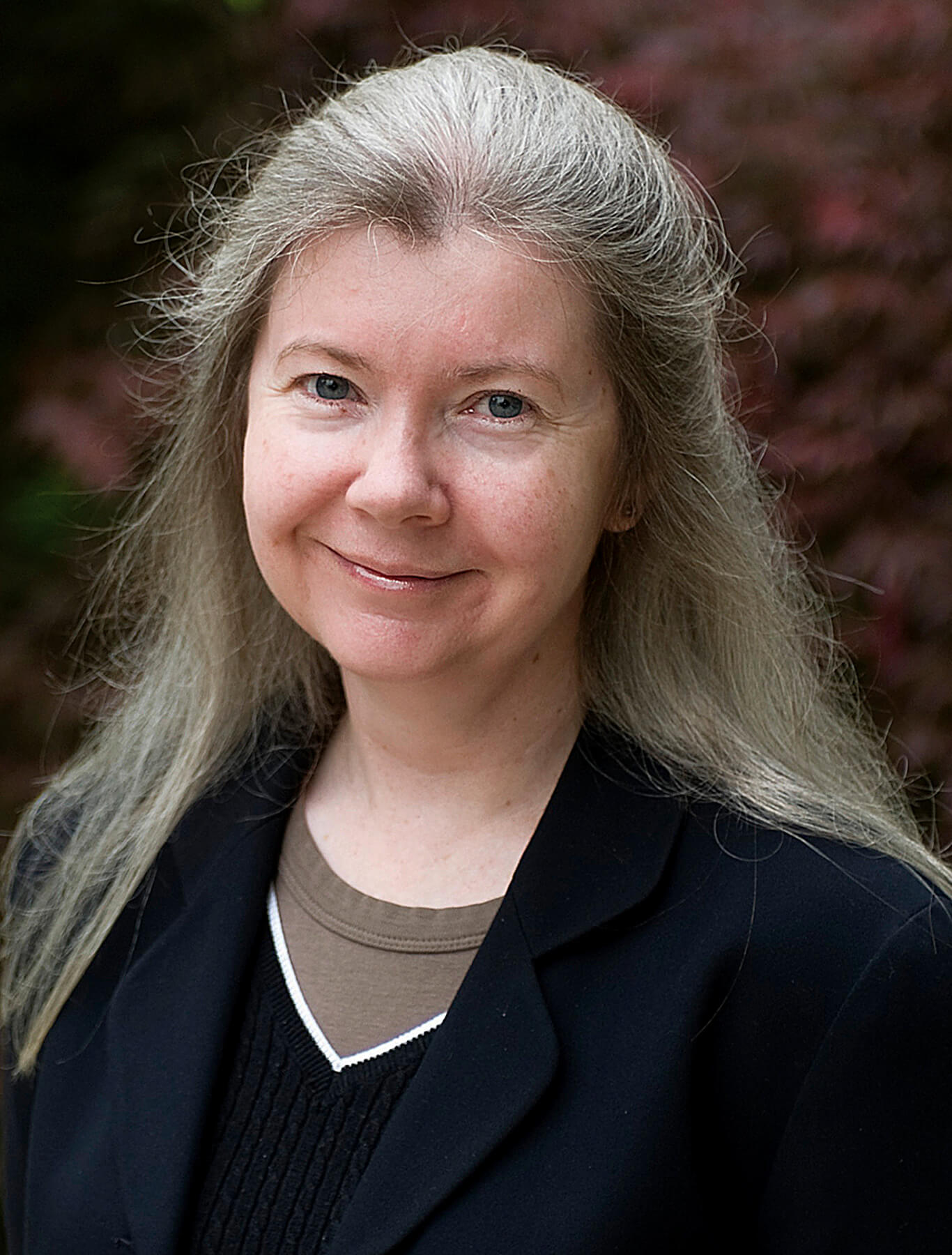Purdue, China's Zhejiang University form joint clean energy research initiative

Alan Rebar, from left, executive director of Purdue's Discovery Park, and Kefa Cen, director of Zhejiang University's Institute for Thermal Power Engineering and State Key Laboratory of Clean Energy Utilization, participate in Thursday's (July 21) signing ceremony to formally launch the Purdue-Zhejiang Clean Energy Research Initiative. The ceremony, which included several members of the Zhejiang University delegation and Purdue faculty and Discovery Park officials, was held at Mann Hall in Discovery Park. (Purdue University/Phillip Fiorini)
WEST LAFAYETTE, Ind. – Purdue and Zhejiang universities, which have collaborated on several projects since 2005, are forming a joint research initiative focusing on advancing clean energy technologies, specifically biomass and coal.
Officials with Purdue's Energy Center and the Center for Environment and Zhejiang University will formalize creation of the Clean Energy Research Initiative during a signing ceremony at 9 a.m. Thursday (July 21) in Discovery Park's Gerald D. and Edna E. Mann Hall.
"The Purdue-Zhejiang Clean Energy Research Initiative will focus on exploratory collaborative research in the area of clean energy utilization, with a primary, but not exclusive, emphasis on biomass utilization and clean coal technology," said biological sciences professor Maureen McCann, director of Purdue's Energy Center.
Joining McCann in the signing will be Alan Rebar, executive director of Purdue's Discovery Park and senior associate vice president for research; Zhejiang University professor Kefa Cen, director of the university's Institute for Thermal Power Engineering and State Key Laboratory of Clean Energy Utilization; and John Bickham, director of Purdue's Center for the Environment.
"A primary goal of this joint center between Purdue and Zhejiang University is to create opportunities for research activities, student and faculty exchanges, workshops and other educational programs designed to foster a culture of collaboration," Cen said.
Purdue mechanical engineering professor Jay Gore, director of the Energy Center at the time, and Cen signed a memo of understanding in August 2009 to collaborate on energy research and to explore a joint program on biomass and clean coal utilization.
In June 2010, Purdue's Energy Center and Discovery Park signed an engagement agreement with the State Key Laboratory of Clean Energy Utilization at Zhejiang University, which was designed to allow Purdue students and faculty to spend up to one week to three months conducting research at the Zhejiang University.
Through this program, Purdue professors Steve Son, Klein Ileleji and Gore and their students have collaborated with the State Key Lab, leading to joint publications.
Currently, Gore is one of 12 faculty members nationwide participating in a Jefferson Science Fellowship with the U.S. Department of State in Washington, D.C.
McCann also directs Purdue's Center for the Direct Catalytic Conversion of Biomass to Biofuels, known as C3Bio. C3Bio, which is affiliated with the Energy Center and the Bindley Bioscience Center in Discovery Park, was funded with a $20 million U.S. Department of Energy grant in 2009 with the goal of maximizing the carbon and energy efficiencies of biofuel production.
Earlier this week a delegation from the Zhejiang Province, Indiana's sister state in China, participated in a trade and investment symposium in Indianapolis on alternative energy technology and other industry sectors.
Faculty, staff and students from 10 colleges and schools and Purdue Physical Facilities are working with the Energy Center in advancing interdisciplinary research in bioenergy, clean-coal technologies, and batteries and energy storage systems as well as hydrogen, nuclear, solar, nanotechnology, wind and advanced ground vehicles.
Purdue's Center for the Environment examines how to protect the environment while sustaining a global economy. Researchers study how to model and predict the impact of activity on ecosystems, monitor environmental quality, manage natural resources and develop technologies for creating a cleaner environment.
The Energy Center and Center for the Environment also are part of Purdue's Global Sustainability Initiative, which is coordinating research in sustainability challenges such as climate change, energy, the environment and water. The initiative also includes the Purdue Climate Change Research Center, Purdue Water Community and the Purdue Center for Global Food Security.
Zhejiang University, founded as the Qiushi Academy in 1897, is one of China's oldest and most prestigious institutions of higher education, with more than 40,000 students today. Located 110 miles southwest of Shanghai in Hangzhou, Zhejiang was 29th in the 2011 World University Rankings and is known for its strong engineering programs. Its library collection contains about 6.9 million volumes, making it one of the largest academic libraries in the country.
Writer: Phillip Fiorini, 765-496-3133, pfiorini@purdue.edu
Sources: Maureen McCann, 765-496-1779, mmccann@purdue.edu
John Bickham, 765-494-5146, bickham@purdue.edu

